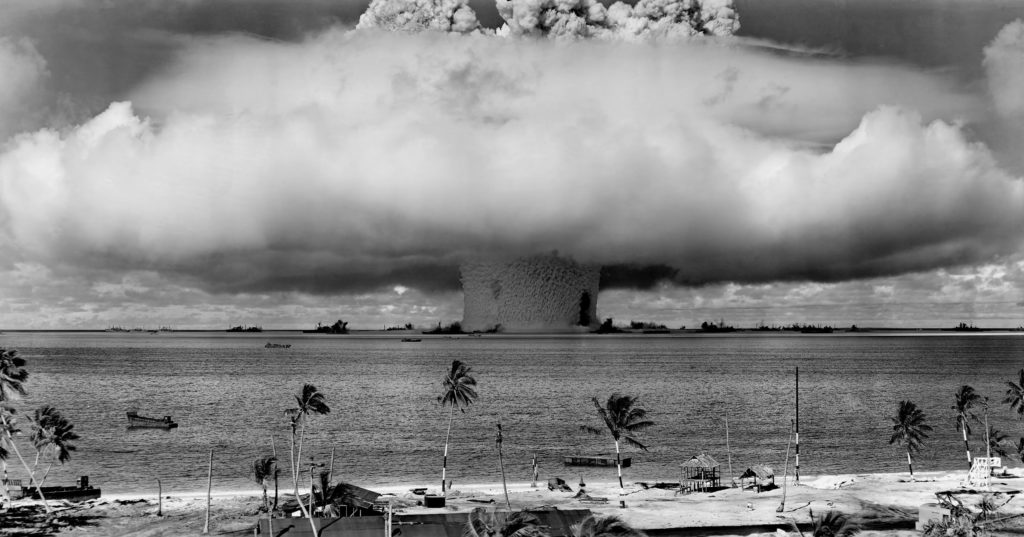O. Brian Toon Interview
It is predicted that over 400 million people would die in a global nuclear war, so why aren’t even scientists willing to tackle this issue?
Brian Toon is the Professor of Atmospheric and Oceanic Sciences at University of Colorado Boulder. He specializes in the effects that nuclear warfare has on the atmosphere and the earth’s climate.
Find out how you can help to raise awareness of this crucial topic.
Listen here or find us on your favorite podcast app.
March 15, 2021
The Power of the Push of a Button

#152 Great.com Talks With... O. Brian Toon from the University of Colorado Boulder
When we think of nuclear weapons there are usually two cities that come to mind: Hiroshima and Nagasaki. Nuclear weapons were first engineered towards the end of World World 2; creating for the first time the potential to destroy entire cities and populations at the push of a button. Warfare had suddenly reached terrifying new proportions.
During the Cold War between the Soviet Union and the US, there were over 70,000 nuclear weapons on the planet. Today, despite the UN agreement which outlaws nuclear weapons, there still remain over 14,000. In this episode, we spoke with Professor Brian Toon from the University of Colorado Boulder about the past and current nuclear situation, and his research into the devastating effects it could have on our atmosphere.
We are Always Thirty Minutes Away from Nuclear War
A kiloton nuclear weapon explodes with the force of 1,000 tons of TNT, and a typical nuclear bomb is about 3,00 kilotons. When dropped in a location, the damage would spread 10km at least in diameter. There is a bright flash when these bombs explode and the damage far exceeds the original blow. Just like in Hiroshima, it is the firestorm that follows which can cause the most destruction. Tremendous fires equal tremendous smoke and this smoke makes its way to the upper atmosphere where it sits for years.
Professor Toon explains that we risk the destruction of much of the Ozone layer if this amount of smoke was able to enter the stratosphere. The upper atmosphere temperature would rise by 100 degrees centigrade and the ground would cool. At mid-latitude you would have a nuclear winter following a war between The US, Europe and Russia, which means temperatures would drop below freezing and ultimately destroy food supplies across the world. Given that there is only enough food on the whole planet for 60 days worth of survival, people would start to starve to death.
As Professor Toon notes, what is terrifying is that a nuclear attack could be instigated at any point in time and by a single person; ‘There are 30 minutes to decide whether to fire missiles if the US thinks that Russia has launched theirs.’ But there have also been numerous near-accidents of this sort with innocent acts, such as launches of sounding rockets, temporarily interpreted wrongly as nuclear attacks.
Although nuclear wars are a problem that can be assessed as a scientific problem, the issue of nuclear war is not being treated as something that should be solved by the leaders of the nuclear weapons states. Unfortunately, there is no funding within this field for scientists to evaluate this threat and advise politicians and many scientists are unwilling to study such a contentious issue, even though millions of people are at risk.
So what can we do to prevent this disaster from happening? Professor Toon urges the science community around the world to get engaged in this problem; to advocate and advise for solutions in order to warn the leaders around the world of the fatal dangers. Government funds should be spent in a far more responsible way, such as for the health care and education systems, instead of deadly missiles which sit in the ground unused and instill fear in our everyday lives.
Want to learn more about Professor Brian Toon? You can check out his profile at the University of Colorado Boulder, and watch his TedTalk: ‘I’ve studied nuclear war for 35 years - you should be worried.’
You can also download the article Fire and Ice: What Nuclear War Would Mean for the Planet at Futurum.
How does Great.com make money? If someone in New Jersey or Sweden lands on an online casino review, clicks a link, and signs up at that casino — They earn money. They then donate 100% of this revenue to global climate change initiatives. They want to not only change the gambling industry, but the world!